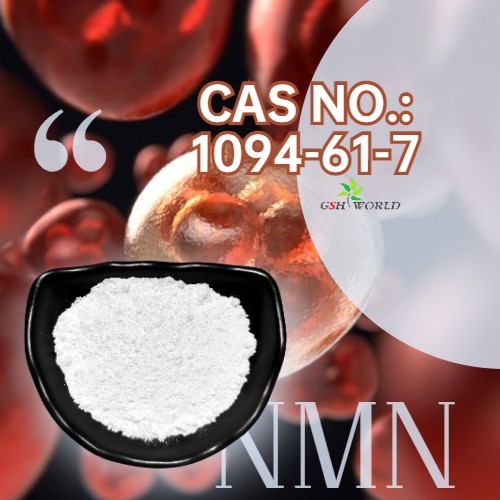This study focused on the effects of NMN Biostime on the gut microbiome and metabolic profile of a specific mouse model of Alzheimer’s disease, providing a new perspective for our understanding of the role of NMN Biostime in the treatment of Alzheimer’s disease.
Alzheimer’s disease is a complex brain disease characterized by specific plaques, protein tangles, and inflammatory responses in the brain.
Studies have found that the balance of microbes in the gut is closely linked to the development of Alzheimer’s disease, and the imbalance of gut microbes may affect brain function.
Adjusting the balance of gut microbes has become a new direction in the treatment of Alzheimer’s disease.
On June 17, 2024, the biological research team of Jinan University published a new research result in the journal BBRC.

What is NMN Biostime?
NMN Biostime is a special composite preparation, which is composed of β-nicotinamide mononucleotide (NMN), Lactobacillus plantarum and lactulose.
Lactobacillus plantarum a probiotic that has shown to have neuroprotective effects, improve memory and spatial learning, and relieve stress-induced depressive behaviors.
NMN is an important precursor of cellular energy metabolism and is important for keeping nerve cells healthy.
Lactulose is a prebiotic that helps the growth of beneficial bacteria while inhibiting the growth of harmful bacteria.
Effect of NMN Biostime on intestinal microbial community composition
By analyzing stool samples from mice, the researchers found that NMN Biostime was able to change the type and number of bacteria in the mice’s guts.
In particular, in mice models of Alzheimer’s disease, NMN Biostime reduced the number of firmicutes associated with the disease while increasing the number of bacteroidetes, which helps restore a balanced state of bacteria in the gut.

Effect of NMN Biostime on intestinal microbial diversity
Further analysis showed that after NMN Biostime supplementation, the microbial species in the gut of mice became more orderly and reduced disorder.
The alpha diversity index showed a reduction in the number of microbial species in the gut after supplementation, which may help beneficial microbes dominate the gut.
At the same time, the beta diversity analysis also showed that the structure of the microbial community became more balanced, which contributed to a healthier and more harmonious gut environment.

Effect of NMN Biostime on intestinal microbial gene changes
The researchers also delved into the gene function of gut bacteria.
They found that several key metabolic pathways more active in mice supplemented with NMN Biostime.
These pathways include the degradation of catechol to beta-ketocaproic acid, and the degradation of L-tyrosine.
These metabolic pathways are essential for cellular signaling and energy supply, as well as for maintaining brain health.

Sum up
This study comprehensively demonstrates the multiple effects of NMN Biostime in improving gut microbial communities,
metabolic pathways, and neurological health in mouse models of Alzheimer’s disease (AD).
NMN Biostime enhances the activity of beneficial bacteria by adjusting the composition and diversity of gut microbes, thereby improving the gut environment.
At the same time, it also activates key metabolic pathways that promote the health and function of nerve cells.
These findings not only deepen our understanding of the pathogenesis of Alzheimer’s disease,
but also provide valuable information for the development of new treatment strategies.
With further research into the potential of β-Nicotinamide Mononucleotide Biostime,
we look forward to more effective treatments for Alzheimer’s patients in the future.”
References:
[1]Zhang J, Zhao X, Xu H, Liu X, He Y, Tan X, Gu J. NMN synbiotics intervention modulates gut microbiota and metabolism in APP/PS1 Alzheimer’s disease mouse models. Biochem Biophys Res Commun. 2024 Jun 17;726:150274.





